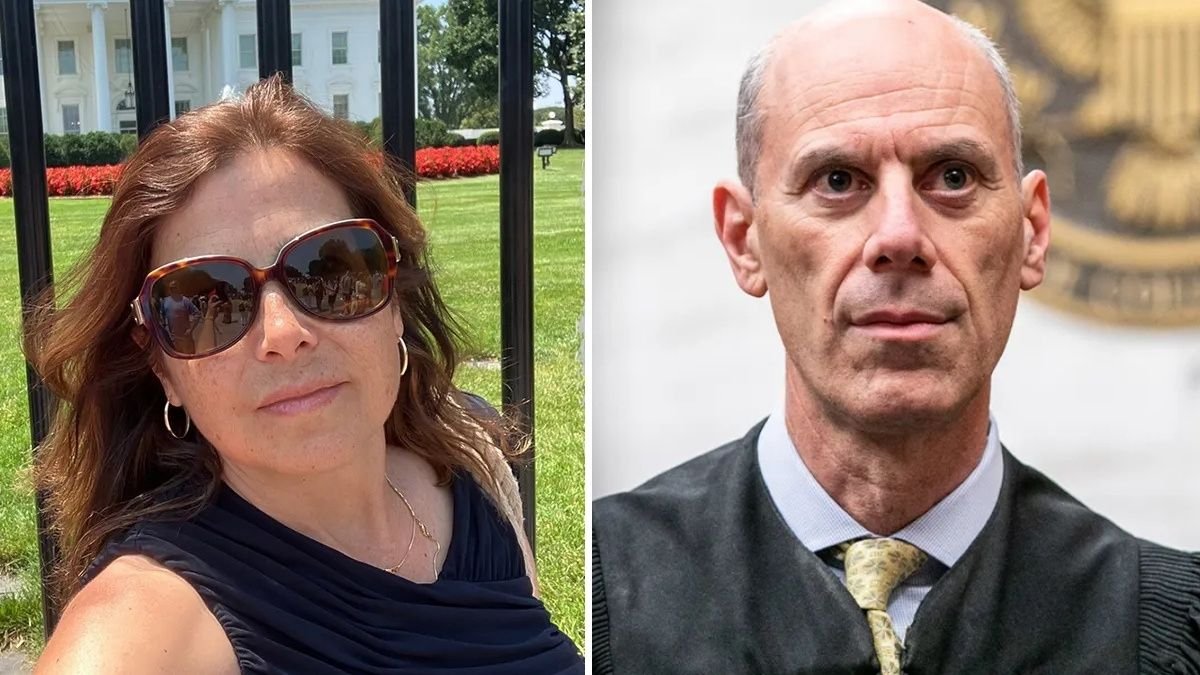A federal judge has ordered the release of Nathalie Rose Jones, 50, who was arrested last month for threatening to kill former President Donald Trump. Jones was placed under electronic monitoring and must attend psychiatric visits after retrieving her belongings from a police station.
Jones faced charges for making violent social media threats, including a message stating her willingness to kill Trump by disemboweling him. She also called Trump a terrorist and blamed his administration for unnecessary COVID-19 deaths.
Following a protest near the White House, Jones told Secret Service agents she possessed a bladed weapon and admitted to making threats against Trump during interviews. Initially, she was held without bond for public safety concerns.

Nathalie Rose Jones (left), accused of threatening Trump, was released under strict conditions by Judge James Boasberg (right) on Aug. 27, 2025. (Facebook; Getty Images)
Chief U.S. District Judge James Boasberg overturned the detention order, citing an appeal from Jones’s lawyers who argued she was unarmed and lacked intent to carry out the threats. A grand jury later declined to indict her.
Boasberg has recently clashed with the Trump administration on multiple fronts. Earlier this year, he blocked the deportation of Venezuelan migrants under the 1798 Alien Enemies Act, citing due process violations.
He ordered deportation flights to return to U.S. soil and launched an investigation when those orders were ignored. The Supreme Court eventually ruled the deportations violated constitutional protections, affirming Boasberg’s stance.
President Trump publicly criticized Boasberg, calling him a “radical left lunatic” and calling for his impeachment. Meanwhile, Attorney General Pam Bondi filed a misconduct complaint against the judge for alleged improper comments about Trump and other federal judges.
Boasberg warned peers that the Trump administration might ignore court rulings and trigger a constitutional crisis. Bondi’s complaint demanded a probe and possible disciplinary action against the judge.
Jones’s case illustrates Boasberg’s key role in ongoing legal battles involving presidential power, immigration policy, and judicial independence. Jones remains on strict conditions as her case proceeds with a scheduled preliminary hearing.
The case highlights the struggle to balance safety and legal rights when threats target high-profile political figures amid heightened political tensions.
This situation unfolds alongside continuing controversy over Boasberg’s rulings and conduct, reflecting the broader clash between the judicial system and the Trump administration’s policies.
Jones’s legal status remains active as courts weigh evidence and implications amid public scrutiny of threats against national leaders.

